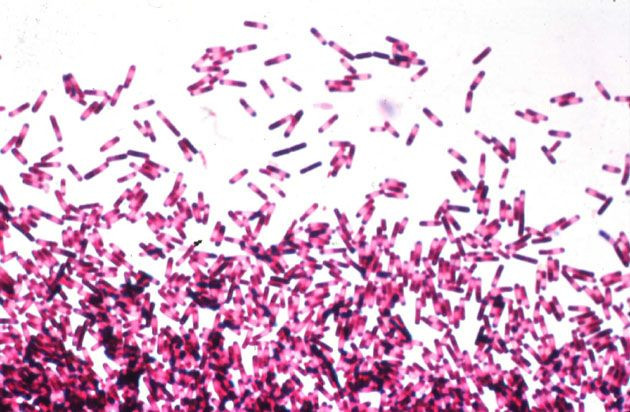Scientists Create Synthetic "Poop" to Cure Nasty Gastrointestinal Infections

Scientists have created synthetic "poop" to cure nasty gastrointestinal infections commonly caused by a toxin-producing bacteria Clostridium difficile.
Researchers invented an artificial stool called a "super-probiotic" called RePOOPulate to replace human fecal matter used in stool transplants to treat painful C. difficile infections.
Scientists created the synthetic stool from purified intestinal bacterial cultures grown in "Robo-gut" equipment that mimics the environmental conditions of the large intestine.
Researchres said the synthetic stools offer an effective therapy against C. difficile infections, and are safer, more stable and adaptable and less "icky" that traditional treatments that use fecal matter from donors.
C. difficile infections happen when the bacteria overpopulate the colon when patients take antibiotics that kill healthy gut bacteria. They can lead to a host of gastrointestinal problems, like severe diarrhea, and a single infection can often lead to outbreaks in hospitals and long-term care facilities.
Researchers say that people with recurring C. difficile infections have few treatment options, adding that while stool transplants are effective in ridding the nasty infections, human fecal matter may contain unknown pathogens that can put patients at risk for future disease.
Researcher Emma Allen-Vercoe, a professor at the University of Guelph's Department of Molecular and Cellular Biology, said that using synthetic poop for transplants eliminates the risk of patients contracting an infectious disease through fecal bacteria "because the exact composition of the bacteria administered is known and can be controlled".
What's more, the synthetic stools can be tailored to individual patient needs, is easily reproduced and is a more appealing option for many patients and doctors who are uncomfortable with natural fecal matter.
Researchers tested the synthetic poop on two patients with chronic C. difficile infections who had previously failed to respond to several rounds of antibiotics. The study found that after treatment, both patients were symptom-free within three days and tested negative for C. difficile half a year later.
Researchers added that later analysis showed that some features of the synthetic stool stabilized in the patients' colons.
"In other words, the introduced microbes were able to persist," Allen-Vercoe explained in a news release. "This is important because most commercially available probiotics only colonize transiently."
Researchers hope to further develop the RePOOPulate concept so that it can be used to treat other gastrointestinal infections caused by conditions like bowel disease, obesity and even autism by replacing abnormal gut microbial ecosystems.
The study was published Jan.8 in the journal Microbiome.



























